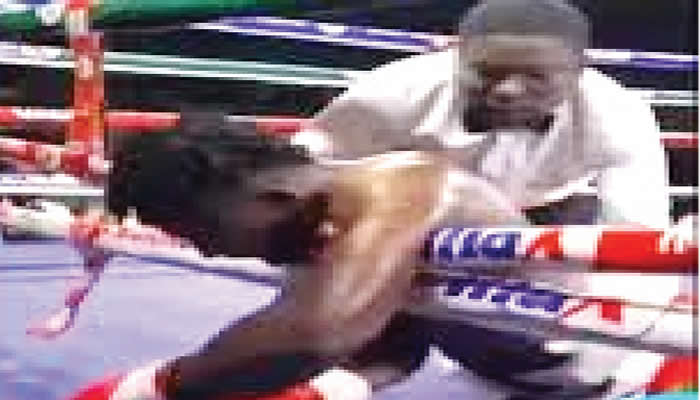The Untimely Demise of Segun Olanrewaju: A Transnational Boxing Tragedy
The sudden death of Nigerian boxer Segun Olanrewaju, known as "Success," during a bout in Ghana has sparked a complex interplay of grief, bureaucratic processes, and international relations. The tragic incident, which occurred on March 29th at the Trust Sports Emporium Boxing Arena in Bukoum, Ghana, has left Olanrewaju’s family in Nigeria grappling with the emotional toll of their loss, compounded by the protracted delay in repatriating his remains. The situation has also brought to the forefront the responsibilities of sporting authorities in both nations, raising questions about proper protocols and the duty of care owed to athletes competing abroad.
Following Olanrewaju’s collapse during the fight against Ghanaian boxer Jon Mbanugu, he was pronounced dead at Korle-Bu Hospital. A government-appointed committee in Ghana subsequently launched an investigation into the circumstances surrounding his death. After interviewing thirty individuals connected to the case, the committee submitted a comprehensive 100-page report to Ghana’s Minister for Youth and Sports, Kofi Adams. The report recommended that Ghana assume full responsibility for the repatriation of Olanrewaju’s remains, including all funeral and burial expenses. This recommendation, according to the committee, underscores Ghana’s commitment to pan-African solidarity and acknowledges the boxer’s contributions to the sport in the region.
Despite this gesture, the delay in repatriating Olanrewaju’s body has caused significant distress to his family and ignited criticism from Nigerian boxing authorities. Dr. Rafiu Ladipo, President of the Nigeria Boxing Board of Control (NBBofC), has publicly condemned the Ghana Boxing Authority (GBA) and the Ghanaian government for the two-month delay, emphasizing their responsibility to return the boxer’s remains to Nigeria. The prolonged wait has exacerbated the family’s grief, leading to planned protests at the Ghanaian embassy in Germany, which were ultimately averted by Ladipo’s intervention.
The escalating tensions highlight a complex interplay of cultural sensitivities, bureaucratic procedures, and international protocols. While the Ghanaian committee’s recommendation signifies a willingness to take responsibility, the practical implementation of repatriating the remains seems to have been mired in delays, causing anguish and raising questions about the efficiency of the process. The public criticism from Nigerian boxing officials further underscores the urgency of the situation and the need for swift action to alleviate the family’s suffering.
The seven-member Ghanaian committee, chaired by Ambassador Major (retd.) Amarkai Amarteifio, concluded its investigation within the stipulated 21-day timeframe. However, the subsequent steps, including coordination with Nigerian authorities and Olanrewaju’s family regarding repatriation and funeral arrangements, have seemingly faced obstacles. The Minister for Youth and Sports, Kofi Adams, has stated that the ministry will review the report and its recommendations before making them public, with the aim of improving the boxing industry and preventing future tragedies. This indicates an intention to learn from the incident and strengthen safeguards for athletes.
Olanrewaju’s mother has poignantly expressed her grief, emphasizing the pain of not being able to bury her son and the unending tears since his passing. The continued delay has undoubtedly amplified the family’s emotional burden. Amidst this tragedy, Olanrewaju received a posthumous Ultimate Sacrifice Award at Nigeria’s first boxing awards ceremony. This recognition underscores the impact he made on the boxing community and serves as a reminder of the potential that was tragically cut short. The incident highlights the inherent risks involved in professional sports and the importance of robust safety measures and protocols, especially for athletes competing in foreign countries. The responsibility to ensure the well-being and proper handling of athletes in such circumstances lies with both the host nation and the athlete’s home country. The case of Segun Olanrewaju brings this responsibility into sharp focus and calls for greater transparency and efficiency in handling similar situations in the future.














